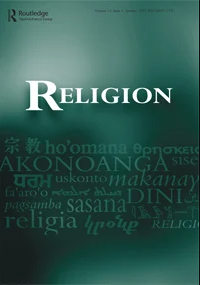
Caleb Carter
Religion 55/2 (2024), 393–410
Abstract: A growing body of scholarship has demonstrated how the idea of the secular was constructed and deployed in the modern era. While scholars have emphasized the political and bureaucratic ramifications of this transformation, less attention has been paid to two interrelated constructs: spirituality and nature. This article argues that mountaineers played a formative role in that process by conceptualizing their sport within and against the emergent paradigms of secular and sacred. Taking the case of Japan at the turn of the twentieth century, I show how foreign and domestic mountaineers anchored alpinism in a modern secular framework. They drew from Protestant thought, Romanticism, naturalism, and Japanese cultural identity, while dismissing the long shadows of mountain worship in their country as superstitious and quaint. In doing so, they contributed to the construction of the sacred-secular binary that, despite their intention to separate these two realms, interwove them in new ways.
About the author: Caleb Carter is a HYI Visiting Scholar from 2024-25.
